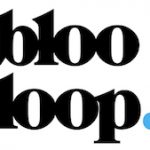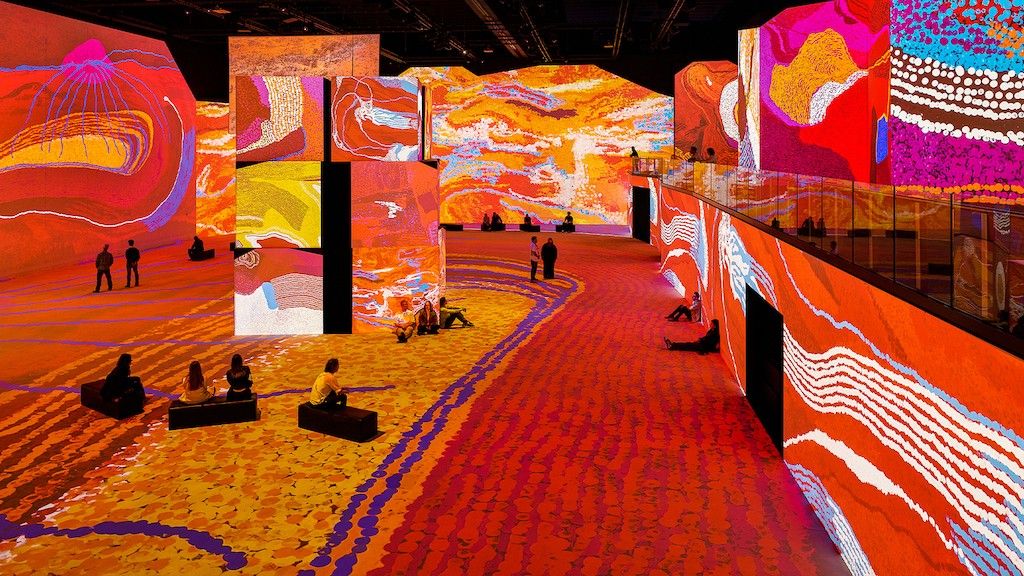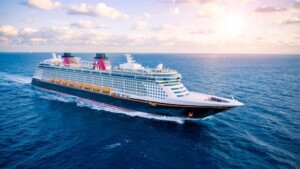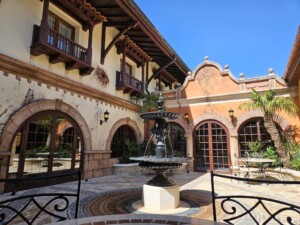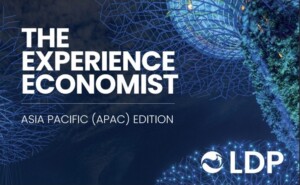Norm Elder has over 40 years experience in the theme park business, having been integrally involved with the creation of Walt Disney World and Universal Orlando as well as the opening of Tokyo Disney and Universal Studios Japan and Shanghai.
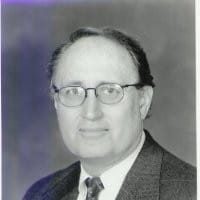
Whilst Asia and corporate sponsorship programmes may be hot topics today, Norm was putting together the most successful corporate sponsorship programme in theme park history for Universal Studios Japan a decade ago.
Starting in the Industry as a Disneyland ride operator whilst still at college, Norm went on to join Disney after graduation, working his way up to Director level at Walt Disney Imagineering. A move to specialise in marketing and corporate sponsorship then lead to senior executive roles with Disney and Universal both in the US and overseas. He now offers his experience of themed entertainment development, branding, marketing and corporate sponsorship to the entertainment industry’s leading companies through his own consultancy.
Blooloop talked to Norm about his career highlights, the theme park business today and “borrowed equity”…
A career in theme parks
Looking back over a remarkable career, what do you think have been the key lessons and achievements?
The value of “persistence and determination” and to always keep an open mind and to keep learning. One continuing goal is to optimize each and every day….since time is far and away our most valuable possession, I want to find a way to remind myself continuously to use it wisely and fully.
With respect to achievements, I’ve been blessed to work with many incredible people and to learn so much from them. From all of the talents at Disney Imagineering, to those at Disney Parks and Resorts, Universal Studios Parks and Resorts, and on and on. And I have had the unique opportunity to contribute to some very special projects: The original development and opening of Walt Disney World and its first ten or twelve years of expansion, the development of Universal Studios Florida and subsequently Islands of Adventure and the overall Universal Orlando Resort, Tokyo Disneyland, Fiesta Texas in San Antonio working with the Gaylord Company, and Universal Studios Japan.
And I have been able to contribute world-class marketing and sponsorship, achieving some of the most successful programs in the industry, such as generating $500 million+ in cash commitments from sponsors at Universal Studios Japan prior to its opening.
You’ve said that the theme park business is very challenging because “ every year on the first of January, you find you start all over from zero–all over again“. How do you manage to maintain creativity, making sure you are going to exceed your customer’s expectations?
Rather than looking at things on a yearly basis, I personally look at the theme park business as a journey. So it’s all about the journey, and not the destination. Of course, from a purely business perspective, we all have to address annual metrics, whether they be financial, attendance, growth, and so on. But by focusing on the continuing journey, I find it keeps me thinking about the all-important customer, and continually creating new customers. I cannot overstate the importance of “repeat visitation.”
Having worked in North America, Europe, Asia – where do you feel at home professionally?
I grew up in this business in North America, integrally involved with the creation of Walt Disney World and Universal Orlando, among others. But since the 1980s, it has become such a mature business here. And while I have done substantial work in Europe, such a Port Aventura when it was owned by Universal, I still don’t fee as if I have established a significant body of work and experience there.
But having been one of the first Imagineers involved with Tokyo Disneyland, and then having gone on to USJ, together with a huge amount of development work in China, Korea, Malaysia and Singapore, I feel totally at home in Asia.
Are there any universal truths about creating an experience that customers will love?
I equate it to producing a blockbuster motion picture. As you well know, the foundation derives from great storytelling. But to me, the real secret is in the execution of the story, paying attention to the thousands of details, many or most of which the guest never notices on a conscious level. That is as close to a “universal truth” as I’ve come, and I learned that first-hand at Imagineering.
Can you give us any examples?
I’ll go back to that wonderful castle at Magic Kingdom at Walt Disney World. Nobody would notice, but if you look up, and you would probably need binoculars to see it, on the turrets there are all these little gargoyles that are incredibly detailed. It’s that kind of detail that singularly makes no big difference but when you add it up with a thousand others it combines and gives you a gestalt if you will that is irreplaceable; you can’t duplicate the feeling sensorially that it taps into.
You can almost walk anywhere in a Disney park and also Universal and look around and pick out certain façade or a certain area to focus on, and look at the detail in terms of colour shapes and design and its just phenomenal.
Like the murals in the castle (see header image)?
Exactly; 300, 000 individually glazed tiles that make up that mural at Cinderella’s castle were all made in Italy and then brought over and applied to the castle.
What has been the impetus to your career choices leading up to you now having your own consultancy?
I have had the good fortune to have had incredible experiences in both large organizations and in more entrepreneurial situations. For example, I started at Disney, then went to Warner Communications, then spent a decade as part of a small marketing consultancy, then went to Universal Studios.
And now, very fortunately for me, there is substantial demand for what I do in marketing and corporate sponsorship to keep me very busy. So it is wonderful to be able to apply all that I’ve learned and experienced over some forty years in the industry.
Can you talk about any of your current projects?
I am currently involved with one of the biggest gaming companies, focusing on a sponsorship project. Also, I’m working on a project for New York City’s Times Square, an entertainment destination in southern Jordan and I am just starting a project in Malaysia. None of these projects have been made public yet, so I am unable to be more specific. But in all cases I am involved with sponsorship and marketing.
Thoughts on the Asian market
Asia has long been tipped for growth. What are the challenges to developing a theme park in Asia?
First and foremost, you have to be where the projects are located…..you cannot do these projects from a distance. And cultural considerations are imperative, in order to make the context for the entertainment experience as comfortable and accepting as possible. But by and large, the key considerations are the same in Asia as in the rest of the world: great storytelling that is relevant and compelling to the target audience, attention to detail, entertainment “critical mass, ” giving the audience reasons to come back and visit over and over, etc.
When I look at China and compare it to Japan, not so much physically more opportunistically, Japan was a great place to start because of its homogenous population. Certainly Japan was the most logical first step for Disney and subsequently Universal. You look at China and its like 40 sub-countries put together, so the challenges are a lot bigger but then the opportunities are greater too because there are 1.3 billion people.
However, I do think that it will be a huge challenge even for Disney in trying to get the content right. I know from a lot of the research that I’ve been involved with that in China there’s not nearly the awareness, recognition and equity in western and American characters that there is in the rest of the world, so to try to get the storytelling right in China will be interesting.
Universal have seen huge success with Harry Potter and in particular their merchandising sales. However comparing the ratio merchandising spend to theme park revenue for Universal to the Tokyo Disney parks, Universal is around 15%, still well behind Tokyo Disney at over 20%. Why is the merchandising spend at Tokyo Disney so high?
Harry Potter set a new standard for merchandising. The decision to licence Harry Potter and the ability to convince Ms Rowling was brilliant on Universal’s part because it really provided Universal Orlando with such an extraordinary and exceptional shot in the arm from an economic and marketplace standpoint. I don’t know that there was really any other franchise that could have done that except Harry Potter with its broad reach and appeal. To be able to make that deal and then execute it as well as they have has been quite extraordinary.
The Japanese, because of their culture, are huge buyers of merchandise so when people go away they usually come back and bring gifts for their friends and that encourages a lot of additional incremental buying, plus they love the Disney characters. There is really a market segment of females, and especially what I would term teen and young adult females, that absolutely adore the characters and they buy an incredibly large amount of Disney character merchandise at both Tokyo Disney and Tokyo DisneySea.
Corporate Sponsorship
We are seeing corporate sponsorships becoming increasingly important. What are the most important considerations when putting together a sponsorship programme? How do you resolve the tension between providing an excellent visitor experience and the requirements of your sponsors to promote their brands?
First and foremost, the sponsor and the property (theme park) must develop a win-win partnership. Each corporate sponsor is granted a portfolio of rights and benefits by the property based upon the sponsor’s marketing goals and objectives. And the dollar investment by the sponsor is based upon the value of these rights and benefits. It is vital for the theme park to work on literally a daily basis with the sponsor in the activation of the rights and benefits. Most sponsorship relationships fail or are not renewed due to a lack of effective activation.
Sponsors are quite sophisticated in assessing the value of an opportunity, both in tangible and intangible terms. And there has been an explosion of sponsorship opportunities, some good and others not so good. Thus, companies have become highly selective, and carefully assess each sponsorship in terms of its ROI in determining whether to continue it or not.
With respect to the tension between providing an excellent guest experience and the commercial requirements of sponsors, the considerations are similar to product placement in television and motion pictures. The sponsor wants to reach out to visitors in a relevant and compelling way while they are in a highly positive and receptive state of mind….it is what we term “state dependent memory”. This basically means that something that was originally experienced in a positive, happy state is most effectively recalled in a positive, happy state. It’s not unlike hearing a song that takes you back in time to a special memory.
How do you assess ROI over different kinds of sponsorship assets?
Your question is an important one and every sponsor I have found evaluates the success and ROI differently. For sponsors like Coke or Pepsi a big part of their sponsorship is being able to sell their product within the theme park and they have exclusivity to keep their competitor out. On the other hand if take for example an automobile sponsor who isn’t selling their products inside the park, it would be in the context of targeting a certain audience in the park with a positive, happy frame of mind, and being able to use “borrowed equity” to touch the passion points of consumers and bring a brand to life.
Sponsorship is really that opportunity to become part of the consumers lifestyle through an activity that the consumer is really appreciating and enjoying like a theme park.
A lot of sponsors will use research on people’s attitude, awareness and recall to help evaluate the effectiveness of their sponsorship.
When you boil it down there’s a few key areas of benefit that each sponsor looks at: first obviously the ability to be associated with the specific theme park and to have the exclusivity of being the only company in that product category in that theme park; second many companies like Coke or Pepsi are also able to sell their products within the theme park; and third it’s also an opportunity from the standpoint of borrowed equity, for example to be associated with all the connotations of the Disney name. So there are marketing benefits, sales benefits, and then just exposure benefits.
In this day and age whether in the UK or the States, wherever you go you’re bombarded with messages whether on TV or at home. To be able to be in the unique environment of a theme park that is relatively uncluttered and where people are in a positive accepting state of mind is really a valuable thing.
Competition, Pricing and Technology
How can theme parks compete with the increasingly sophisticated competition from at-home entertainment?
At home entertainment will never be able to duplicate what an immersive, live, multi-sensorial experience of a theme park provides. Think of what you feel, hear, smell, touch and taste at a theme park.
For example, when one is standing in front of Cinderella’s Castle in the Magic Kingdom: You hear the bell on the horse-drawn trolley; the sound and smell of popcorn popping; the clouds passing overhead; the background murmur of the crowd; the beautiful flowers; the rockwork of the Castle that you can walk up and touch; and on and on.
What’s the essence of Disney and Universal’s brands that enables them to remain relevant in the fast changing world of tech savvy children?
Disney is the master storyteller, and their collection of high-value characters is peerless. As a Company, Disney is able to emotionally impact consumers lives at numerous touchpoints throughout their lives, both as individual customers and as parents. Their attention to detail in their designs and executions are for the most part flawless.
Regarding Universal, while they do not have the same character-based assets as Disney, they have done a very good job of developing world-class rides and attractions based upon relevant and compelling stories. And they clearly understand their positioning as more exciting and sensorial as compared to Disney’s emotional thrust.
How can theme parks best weather the recession in Europe and North America?
Never have marketing fundamentals been more important. For example, while discounting is unavoidable, it must be done in a selective, highly targeted manner. Too many parks use it like a drug and become addicted to it, totally eroding the “price/value” equation, not to mention their brand equity.
You’ve said in earlier interviews that you thought that pricing would be one area in which we would see changes in strategy. What do you think now?
A theme park’s “price/value” equation is all-important; and perhaps the “pay one price” model needs to be seriously re-examined. Before Disney went to the passport model, there were numerous perceived high value ticketing options: For example, during the Disneyland’s off-season, Magic Kingdom Club members could purchase “all E-ticket” books.
Merlin are going from strength to strength using a kind of non-branded acquisition model. Given your experience with Disney and Universal what do you make of Merlin’s rapid growth?
Merlin’s approach appears to be the “holding company” model with respect to its brand architecture. An example from the consumer product industry is Procter & Gamble. So Merlin Entertainments has a collection of sub-brands, and they are doing an excellent job of managing and expanding the sub-brands they’ve acquired and subsequently expanded.
How should theme parks should incorporate mobile internet technology ?
It’s vital both in terms of physically guiding guests through their day at a park, as well as playing an integral role with park-designed games and entertainment, such as for queue lines.
Are there any innovations (technical or service led) that you consider to be particularly exciting at the moment?
I think that many of the things Disney is exploring/doing in terms of vacation planning, together with tools to make one’s park visit as smooth and impactful as possible are very exciting. I give Disney high marks for continuing to push technology in terms of improving the guest experience….with the end result being greater guests satisfaction and higher per capita spending.
And Finally…
What do you think the future has in store for theme parks?
I think the Disneys, Universals, Merlins and Sea Worlds, for example, will continue to do well and continue to take out-of-home entertainment to new levels (some more so than others, of course). And I believe theme parks will always have an important role to play in entertainment, as they bring the immersive, sensorial experiences to life.
Having achieved so much, what ambitions do you have for the future?
I have been blessed to be in this industry for my entire career, and as far as I am concerned, the best is yet to come. I will continue to apply my experience and expertise to helping create the very best in themed entertainment.
What’s your favourite theme park experience?
Disneyland….it’s what I grew up with, and where I worked as a ride operator when I was attending college. It is an unparalleled example of extraordinary placemaking, employing scale, landscaping, theming, spatial relationships, and so on, to create marvellous areas of complete escapism.
Related: Performance With a Purpose – KidZania’s Win, Win, Win Plan / Interview with Joel Manby, President and CEO of Herschend Family Entertainment / Blooloop talks to Great Wolf CEO Kim Schaefer / Interview with Merlin Entertainment’s Mark Fisher, MD Theme Parks / Blooloop interviews Tom Mehrmann, Chief Executive, Ocean Park Corporation / Singapore: Lion City Roars in 2010 / Not bad for a Boy Wizard! Universal’s Magical Ride / OLC’s 2013 Strategic Plan: Bringing Happiness
Images:
© 2010 Universal Orlando Resort. All rights reserved.
Copyright Disney

